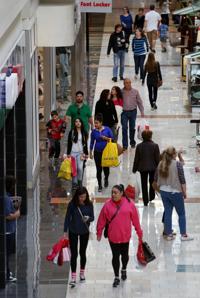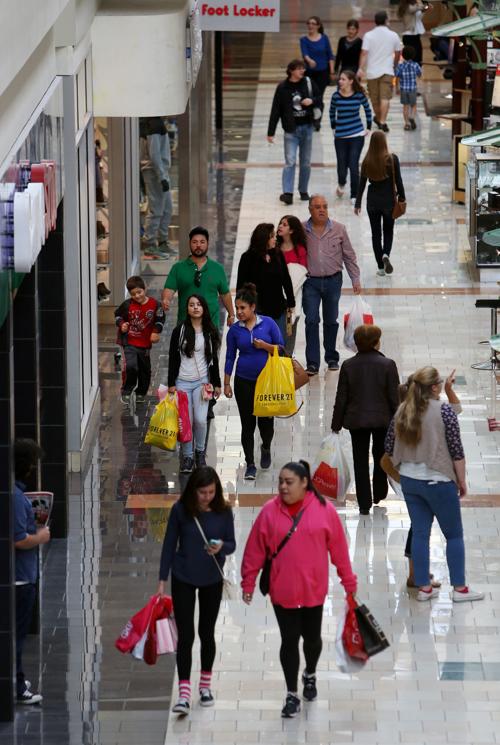Consumer confidence among Arizonans is finally back to pre-recession levels.
A new report by the Behavior Research Center puts the statewide confidence index at 91.7. While that’s still below the baseline of 100 set in 1985, it is the best showing since late 2006.
It’s also up by 10 points from the same time a year ago and 20 points from the year before that.
In general, improving consumer confidence is good for the economy because it can be self-fulfilling: When consumers think things are improving, they spend more, the economy improves, employers hire more, and more people find jobs available, improving their outlook.
But at least one economist isn’t certain there will be a bustling Christmas season for the state’s retailers.
Dennis Hoffman of the W.P. Carey School of Business at Arizona State University warns that new spending by Arizonans may not necessarily help local retailers, and might not help refill the state’s coffers with new sales tax revenues.
He said that many traditional brick-and-mortar retailers have reported that the lower gasoline prices that gave consumers more money to spend are not translating to a commensurate increase in purchases.
The dollars seem to be going to online retailers, Hoffman said. “It’s just the way folks want to shop these days,” he said.
Less than two years ago, more than half of those questioned by the Behavior Research Center said jobs were hard to get. The current survey of 700 adult heads of household, conducted earlier this month, found that figure had dropped to 26 percent.
Conversely, 28 percent of those asked say jobs are now plentiful; that figure in was just 12 percent in early 2014.
However, pollster Earl de Berge found that as much as people think things are better now, only 22 percent think there will be even more jobs six months from now, virtually the same as in the early 2014 survey.
On a more personal level, the number who think their family income will be higher in six months has slipped slightly, though more people appear confident that their pay will at least remain the same.
Hoffman said there are several explanations for the apparent disconnect between how people feel now that the recession is in the rearview mirror and their more cautious predictions for what the future holds.
He said it’s clear to Arizonans that they did weather the recession. But will the economy accelerate?
“I don’t see any signs of that,” Hoffman said. “This is an economy that’s going to continue to be challenged, continue to face headwinds.”
He also said that Arizona is “getting to the point where virtually everybody that wants a job has one.” But wages are not keeping pace.
“You’ve got seniors like me leaving the labor force with fat salaries, (and jobs) filled by millennials that are coming in with less money,” Hoffman said. “That’s dampening the wage growth.”
The survey also shows regional differences.
Not surprisingly, Maricopa County residents are the most optimistic; most of the economic and job growth has been there.
A third of Phoenix-area residents find jobs plentiful, versus 16 percent in Pima County and 23 percent in the balance of the state.
Similarly, 40 percent of Maricopa residents find business conditions good; the figure is 24 percent in Pima and 25 percent elsewhere.





